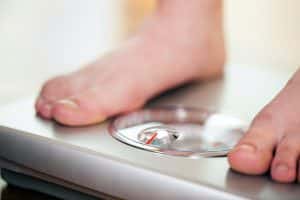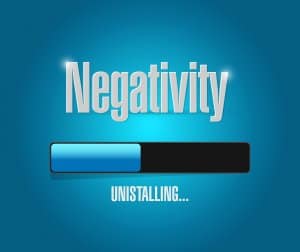
Tips on Getting Started Eating One Meal a Day
For many, the first few weeks of eating one meal a day can be challenging.
The good news is, once you become adapted to eating one meal a day, it becomes second nature to most.
This is when you really start reaping the benefits like weight loss, increased mental clarity, and increased energy to mention a few.
But, in order to make it through those first few weeks, here are some tips, advice, and suggestions to help you in your one meal a day journey.
Tip 1: Gradually reduce your meals
 This applies to anyone that is used to eating many meals per day and very accustomed to a certain schedule.
This applies to anyone that is used to eating many meals per day and very accustomed to a certain schedule.
It can be very difficult to reduce to one meal a day right away, so take it slow in the beginning. As you get further along in the first week, gradually reduce the amount of food you’re eating at each sitting.
As you get into week 2, start to eliminate the extra meals when you feel ready. This will help you get into the habit of eating less and prepare you mentally for omad.
Tip 2: Avoid Junk Food, snacks, and Processed Foods
 Constantly snacking on junk food is a problem many of us face.
Constantly snacking on junk food is a problem many of us face.
Many of us eat unhealthy snacks out of boredom. If possible, try to eliminate them completely from your home. The reason for this is because these foods can be addicting.
Snack foods can give you the mentality of “One more won’t hurt anything.” From a mental perspective, this is opposite of what you are trying to accomplish and can have a negative long-term effect on your weight loss.
Tip 3: Focus on Adapting to One Meal a Day
 The first week, it’s best to not step on the scale and weigh yourself. It can be very tempting to constantly weigh yourself and see results, but your focus needs to be on adapting to the change of omad. Once you become adapted, all of the changes will come naturally.
The first week, it’s best to not step on the scale and weigh yourself. It can be very tempting to constantly weigh yourself and see results, but your focus needs to be on adapting to the change of omad. Once you become adapted, all of the changes will come naturally.
Stepping on the scale too frequently and not seeing results, can deter you from your long-term goals of fully adapting to the omad lifestyle. Many will lose weight right away, but it shouldn’t be your focus initially.
Tip 4: Try out different times of the day to find the best fit for your lifestyle
 One of the luxuries of this diet is the ability to choose your own eating window. For some, eating in the afternoon may work best for them. Some may elect to always eat their one meal a day in the evening. Some people like to eat later in the day or at night because they find it’s what works best for their schedule.
One of the luxuries of this diet is the ability to choose your own eating window. For some, eating in the afternoon may work best for them. Some may elect to always eat their one meal a day in the evening. Some people like to eat later in the day or at night because they find it’s what works best for their schedule.
Make your 4-hour eating window decision based on your lifestyle and not what others think it should be.
Tip 5: Make your One Meal a Day Food that you enjoy

Again, a luxury of this diet is you are able to eat anything you would like.
Depriving yourself of what you like (especially in the beginning) will only make it harder to adapt to the plan for a few reasons. By doing this, you will begin battling multiple things. Not only are you trying to adapt to eating only one meal a day, but you are also changing the food that you are used to eating. This is unnecessary at the beginning of omad.
You should always eat healthier, but in the beginning, it’s easier to gradually adapt to a change of nutrition as well.
Tip 6: Avoid Negativity

If you’re ready to start eating one meal a day, the biggest barrier you are going to face will not be from the abstinence or discomfort from food. It’s going to be from the naysayers or how you are going to deal with the reactions from other people.
Ideally, I think it’s a good idea to inform friends or loved ones and keep them in the loop of what you are doing in your life.
But the reality is, mainstream society is not willing to accept eating one meal a day as a form of eating yet. Some will even go berserk or ridicule you if you bring up the idea of the omad diet.
To make things easier on your journey it can be best to keep it to yourself (other than friends or loved ones). To reach your goals and get what you want out of making a lifestyle change, you don’t have to get others approval about changes you are making with your body.
Don’t let others opinions keep you from moving forward with your goals. Don’t live your life for other people, live it for what makes you happy and what you want out of it.
Tip 7: Know your Objectives and Goals
 One of the reasons I failed my first time with eating one meal a day is that I didn’t have any objectives or goals. I just knew that I was losing weight and treated it that way. I didn’t have a frame of mind as to what I wanted to accomplish with it. I attribute a lot of this to my failure.
One of the reasons I failed my first time with eating one meal a day is that I didn’t have any objectives or goals. I just knew that I was losing weight and treated it that way. I didn’t have a frame of mind as to what I wanted to accomplish with it. I attribute a lot of this to my failure.
To succeed, I had to write down everything I wanted to accomplish and why I wanted to do it. I even had to refer to it in times of struggle.
Ask yourself these questions and write down the answers in a notebook. If there is a time when you are struggling, refer to your answers.
- Why do I want to lose weight?
- Where do I want to be a year from now?
- Am I rewarding myself for good behavior?
- Do my goals fit into my lifestyle?
Use the SMART Goal System to set strong goals. SMART stands for (1):
- Specific
- Measurable
- Achievable
- Realistic
- Time-based
Tip #8: Keep a Weight Loss Journal/or App
 Knowing where you came from is as important as knowing where you are going. Self-monitoring is an important part of success and motivation.
Knowing where you came from is as important as knowing where you are going. Self-monitoring is an important part of success and motivation.
Research shows that people who track their weight loss are more likely to maintain their weight loss.
You can also choose to record your emotions in your journal. This can be helpful in identifying triggers from overeating or snacking.
Either method of a pen and paper journal or web application are both proven effective methods of tracking.
Tip #9: Have Realistic Expectations

Be realistic with yourself, your situation, and what you want to achieve.
Know that there will times when the reality of the world happens and you may stumble. Stay positive keep moving forward no matter what happens. Don’t be too hard on yourself if you have setbacks.
Know that even losing as little as 5-10% of your weight can have significant benefits to your health.
Research shows losing just 5–10% of your body weight can (7):
- Improve blood sugar control
- Reduce the risk of heart disease
- Lower cholesterol levels
- Reduce joint pain
- Reduce the risk of certain cancers
Tip 10: Join a Community or Groups
 There are many communities and groups that will always have support for your journey. There are many people who are starting the omad diet and have questions or want to share their success.
There are many communities and groups that will always have support for your journey. There are many people who are starting the omad diet and have questions or want to share their success.
Everyone has a different situation or different perspective on how they have adapted to one meal a day. Interact and ask questions before starting to make sure you have a clear plan of action.
What tips on this list (or not on this list) helped you in getting started on the Omad diet?
Leave a comment below or visit the Omad Diet Community Forums.



